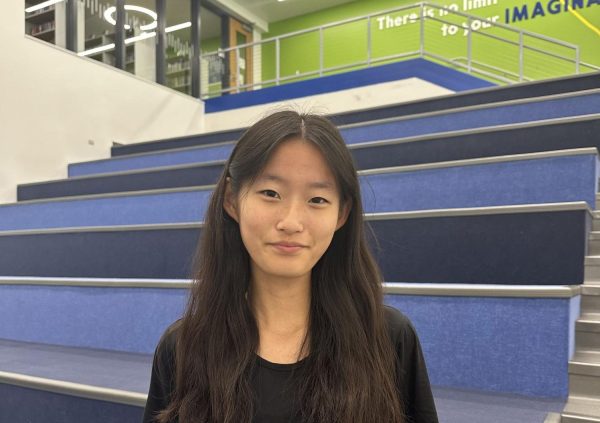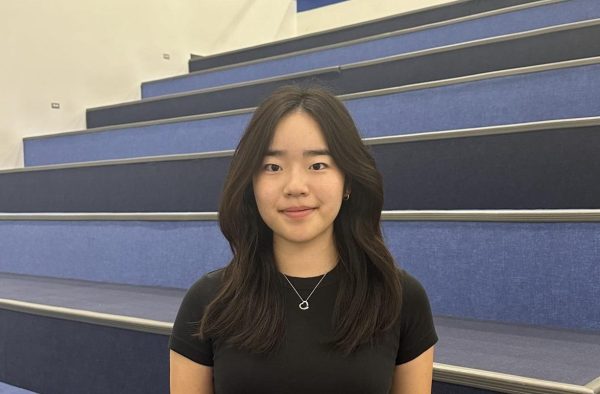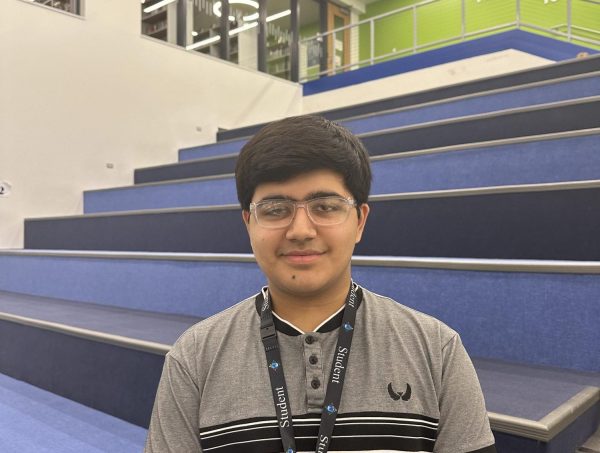INTRODUCTION
Artificial intelligence (AI) found its roots in a game of checkers in 1952. The same year, an AI named “Shopper” emerged, and was able to shop items in a simulated mall as instructed. In just one year, these AI programs could already demonstrate skills, such as “machine learning,” the very same that exist in modern-day technology. Now, several business leaders such as Steve Wozniak and Elon Musk say that AI is developing too fast.
How far will artificial intelligence go? The future regarding AI’s place alongside humans and existing institutions is uncertain. In a 2018 Reuters article, it was revealed that an AI-powered recruitment system by Amazon was scrapped because it favored male applicants over females because the AI’s algorithm observed patterns in past resumes, most of them from men. Then, in 2021, Zillow’s attempt to use AI to estimate the value of homes led to a $304 million inventory write-down and job cuts, according to CNN. Such errors, alongside fears of artificial intelligence becoming autonomous, the novelty of AI is leading to questions, confusion, and misinformation.
However, although AI is still in its infancy, its reach has already expanded to become vital to large companies and our very own lives with technology, such as Google Maps, facial recognition, and more recently, ChatGPT.
As artificial intelligence becomes an increasingly prominent presence in the LZ community, the Spotlight staff believes the multifaceted debate surrounding AI is worth examining. In this issue, Spotlight explores three angles of AI: its ethical considerations, the current effects AI has on our society, and the limits of its capabilities.
ETHICS
As with all other types of technology, the development of artificial intelligence has brought upon its own controversy, causing questions regarding its usage and ethical implications.
One of the concerns with AI in current society is that it can diminish a person’s ability to work and accomplish tasks without being dependent on this technology. This comes into play within the classroom as students are using applications such as Photomath to solve their mathematical problems for them. This also opens up the door for students to misuse AI as well.
“Going into my subject of math, Photomath has always been a concern in the past as an app, and that wasn’t a concern for a while. But then the second that became a thing that students could use, everyone was flocking to it and it became a concern. And I caught kids trying to use it on tests or things like that,” Joseph Ellery, math and computer science teacher, said.
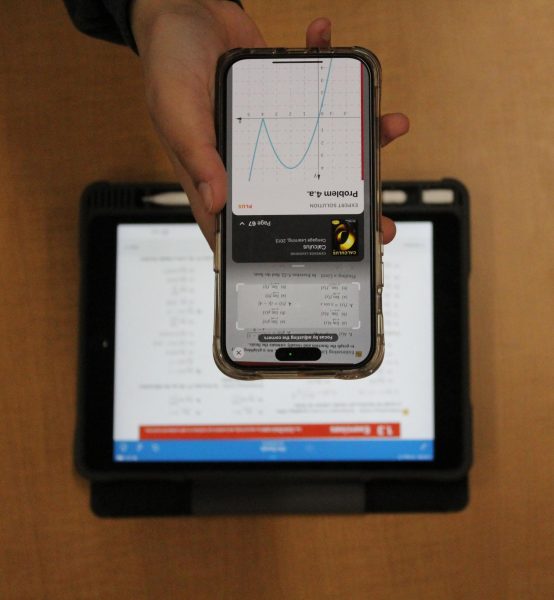
Similarly, Ian Silverman, English teacher, finds this usage of artificial intelligence to be harmful. He believes AI usage can potentially lead to a decline in human intelligence as it allows humans to skip the process of learning.
“People rely on AI without putting the effort in. If you’re a student and you ask AI to write your essay, you haven’t learned anything, or even gone through the process. [But] it’s the process that matters. It’s the process that teaches everything.” Silverman said. “Your analysis of the short story doesn’t mean anything to you in the long run, but it’s the steps you took, then the learning happens.”
Nevertheless, this type of usage does not necessarily mean that all AI is disadvantageous. Silverman does recognize that the ethics surrounding the use and development of artificial intelligence depend on the situation. He says that AI has both its ethical and unethical uses just like “any other tool.” Specifically in the educational setting, Silverman agrees that AI-driven applications including Grammarly and ChatGPT can also be used in positive ways.
“As AI gets better, stronger, and smarter, I think students will be able to reason, discuss, and get genuine, individualized feedback faster than we [teachers] can ever produce,” Silverman said.
It’s also beneficial in other settings outside the classroom, such as in everyday life. However, Silverman argues that it is crucial to be cognizant of AI’s usage and credit it.
“I know people use it to do research. I know people use it for meal planning and creating exercise programs and shopping and travel planning and there’s nothing unethical about that. But, like anything else, when you pass off the work done by AI as your own or when you don’t check [if] it [is] true and factual and accurate, then that becomes unethical,” Silverman said.
Ellery echoes the same ideas as he acknowledges that there are both ethical and unethical ways to use such a powerful creation. Coming from a mathematical and computer science perspective, Ellery says that there are many ways that AI can be misused as well.
“People [can] see AI tools as ‘I can just use it to answer any question I want. And I will accept the answer and move on.’ I don’t think that that’s necessarily always something that is true because AI is not smart. It’s not figuring things out; it’s just using data that it’s given,” Ellery said.
Using “data that [AI]’s given” also poses issues within the arts when it comes to the topic of plagiarizing other artist’s work. Ellery recognizes this growing concern because he believes it will become a “big problem.”
“[With] AI using data, it’s essentially using work that artists have made. In a way, [AI] is plagiarizing a work to create art that’s similar to that style, which I think is a big problem with AI because it takes away from things that people have worked really hard to create,” Ellery said. “People are going to be flocking more towards [AI art] because they can get it so quickly, even if it is plagiarizing other’s work.”
However, some people believe this concern is mostly towards people who are purposefully misusing AI to their advantage. Many people overlook issues with AI in the field of ethics because of the ability for it to be used as a great resource.
“I think it is perfectly ethical to use AI to answer questions about things that you’re unsure of. I’ve used it before, when there’s a question that I want to know a quick answer to, and I can’t think of the easiest way to google it, I will go to AI to ask it to explain. When I was learning Java, there were some high level concepts in Java that I didn’t quite understand, so I would use it to explain it to me,” Ellery said. “However, when it comes to simply, like, ‘hey, I need to write this paper, write me the paper, I’m gonna copy it, I’m gonna paste it,’ that I think is where the line gets crossed.”
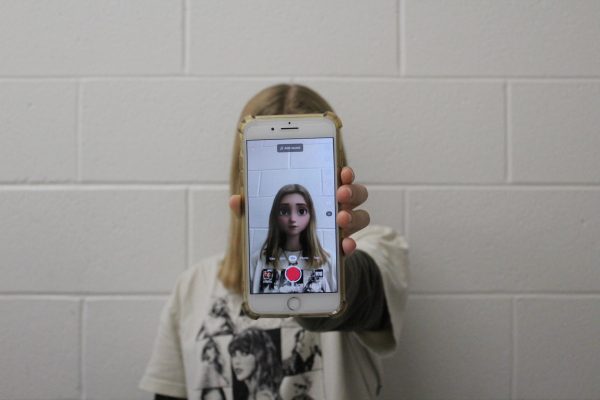
EFFECTS
Today, almost everyone’s lives have been affected by artificial intelligence in some way, shape, or form. Its usages are numerous and oftentimes integral to the technology that humans use daily. However, it is difficult to say whether the use of AI is overwhelmingly beneficial or not as 45% of Americans are equally concerned and excited about the increased use of AI in daily life, according to a 2022 Pew Research survey.
One area of application for artificial intelligence that Likhith Donapati, junior, sees is in careers revolving around healthcare, which is crucial in a profession that prioritizes accuracy in order to help and save patients. AI has already made its case, in fact. For example, in a South Korea study conducted by a peer-reviewed general medical journal, the Lancet, artificial intelligence was more sensitive to diagnosing early breast cancer, with a success rate of 91%, compared to radiologists, who were correct 74% of the time.
“[AI] really helps analyze [patterns in X-rays,] and that helps with making accurate depictions of what is needed to [diagnose and treat] a patient. […] Let’s say that you diagnosed [someone and said] they didn’t have cancer, but they actually did. That can literally lead the patient to die. With AI, they can detect it through their technology and they usually will have the right answer,” Donapati said. “Also, [with] COVID-19, it can also help test and develop new drugs and vaccines for people, which can improve their lives.”
Michael Parsons-Avelar, senior, who works with his father’s company Advanced Solutions, similarly sees a place for AI in a business environment. He says “more recently, [they’ve] been [implementing] AI [because it is] much easier and more cost efficient” than just a human operator.
“It’s gonna speed up a lot of technological roadblocks we’re facing with […] organizing shipments and trucking on a national level,” Parsons-Avelar said. “Yeah, a human can do it with a lot of algorithms, but why would you have someone who would stress themselves out monitoring with lots of room for error, when you can just program AI to do it and run it over and over again? Then it’ll just keep the report instead of this person who is probably costing you money.”
However, this capability of AI in the workforce can be controversial. While it is true that AI has an inherent advantage over humans in terms of accuracy and speed, which can benefit businesses as a whole, AI creates a pressing concern for the employees themselves. A 2020 report published by the World Economic Forum concluded that AI would replace jobs for up to 85 million people by 2025. Although AI is expected to bring more jobs than it takes away, it targets careers that many have already spent their efforts aspiring towards.
Jobs that are characterized by consuming and synthesizing large amounts of information, such as paralegals, media jobs, and research analysts, are particularly susceptible to AI’s far outreach. Artificial intelligence is also expected to displace the work of many in the field of technology. Donapati finds himself to be particularly worried over this, as he has plans of his own to pursue a career in computer science.
“Machines can learn from and make [themselves] better. At this point, it can create code by itself and [it] doesn’t need humans anymore,” Donapati said. “It can do things really efficiently without human errors so it’s [becoming] an easy replacement because it doesn’t have to be paid.”
As such, many experts have expressed concern over the impact artificial intelligence will have on wages and job competition, rather than the possibility that AI could automate entire careers. In an Insider article published in February 2023, Oxford economist Dr. Carl Benedikt Frey told the publication that AI-tools, such as ChatGPT, may actually help workers output higher quality work and assist in upskilling techniques. This aligns with the future that Donapati sees for artificial intelligence, in which “[people will] be able to coexist with AI and be able to work together as a team.”
Where some are concerned, at the same time, others simply sit back and allow AI to take hold of their lives even beyond their careers. Silverman says that this result is due to people’s “misconceptions of what [AI] does and what it can do,” and misunderstandings about its weaknesses.
“I’m seeing this with teachers and adults; people are using it to do things that they would normally do and I think it decreases their skills in things they need to be able to do. Whether it’s writing tests, evaluating situations, or reading documents carefully, they’re just letting AI do it. They’re not functioning the way they’re supposed to in their lives and in their profession.”
Although the approaches to utilizing artificial intelligence that Donapati and Silverman discussed undoubtedly exist in society today, Ellery, on the other hand, finds their apprehensions to be short-term. He believes that artificial intelligence on its own is not enough to be completely independent, and will continue to require human involvement to operate correctly.
“A lot of people are worried that if you can go into ChatGPT and say, ‘Hey, write me a snippet of code that does this, this, and that,’ it will get rid of the need for people to know how to write code,” Ellery said. “However, that is not necessarily the case, because you still need a human on the other end who understands the solution that is being presented to them.”
Parsons-Avelar agrees there has to be somebalance between the two, especially since both will undoubtedly continue to exist in the future.
“You have to give and take; there has to be areas where AI can get rid of a position, because it’s just not needed. There are positions, like trucking, where you can’t take that away from people. I wouldn’t want to implement AI into anything that oversteps its bounds when we’re talking about creating or removing jobs,” Parsons-Avelar said.
LIMITATIONS
In the film 2001: A Space Odyssey, an AI is tasked with running a spaceship and ensuring the safety of the astronauts on-board. However, the AI turns against them, eventually killing everyone aboard the ship. Similarly, Skynet, an AI from the popular Terminator films, was designed to automate military defense. Yet, in the first seconds of the movie, it becomes self-aware and the robot decides to wipe out humanity with a nuclear attack. For many, these movies that are purely fantasy start to feel like they could become a potential reality, as AI “doesn’t really ever stop [evolving],” according to Parsons-Avelar.

In a May Reuters/Ipsos poll of 4,415 U.S. adults, 61 percent said they believe that AI could threaten the future of civilization. However, there are contrasting opinions, such as Parsons-Avelar’s, who feels that AI ever achieving such sentience is “a conspiracy theory,” and “far fetched.” Silverman expresses similar sentiments, as “in the end, it’s only as good as the person who’s using it.”
Despite misguided fears of the extremity to which AI’s presence will in the world will grow to, there are still many more reasonable fears, such as what AI means for future jobs. However, even for these fears, Silverman says the extent to which jobs can be taken from humans is limited.
“We adapt and the basic functions of society become supported by the new technology rather than overtaken by them. One of the big uses for AI right now is in medical diagnostics. You can go in for your MRI or your EEG, and a computer system can read those and compare them to hundreds of thousands, if not millions, of models that it’s been programmed with and diagnose rapidly and accurately. However, it still needs a doctor to make sense [of the results]. It needs a doctor to come up with a course of treatment and tell it to the patient, and then carry out that course of treatment to oversee it. It’s not likely that AI is going to replace doctors; it’s going to change how they do their job,” Silverman said.
Ellery also describes the idea that without a human to interpret the actions that AI performs, their abilities become essentially worthless when applied to the computer science world. Ellery says that many are worried that the need for people to know how to write code will become obsolete, as artificial intelligence can be asked to write strings of code. Similar to Silverman, Ellery says that there is still a need for a human to take artificial intelligences outputs and make sense of them, so that they can “tinker with the results to actually get what they are looking for.” Artificial intelligence will never truly be able to replace the need for human abilities and experiences, as artificial intelligence will never truly be able to obtain and exhibit all the skills and qualities that constitute what it means to be a human being, according to Parsons-Avelar.
“What’s lacking in AI is empathy. There’s no real ability for these machines to feel for another person. They can sympathize technically, […] but they can never look at another person and be like, ‘oh, I feel for them.’ They’re not capable of that, and I don’t know if they ever will be,” Parsons-Avelar said. “At the end of the day, they simply cannot be you. You are not replaceable by a machine. […] What you have done with your life and what you have created is so unique to you, and no machine is ever going to be able to replicate any of that.”


